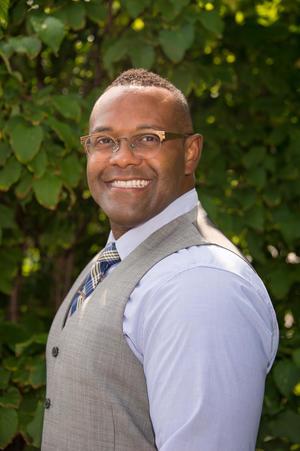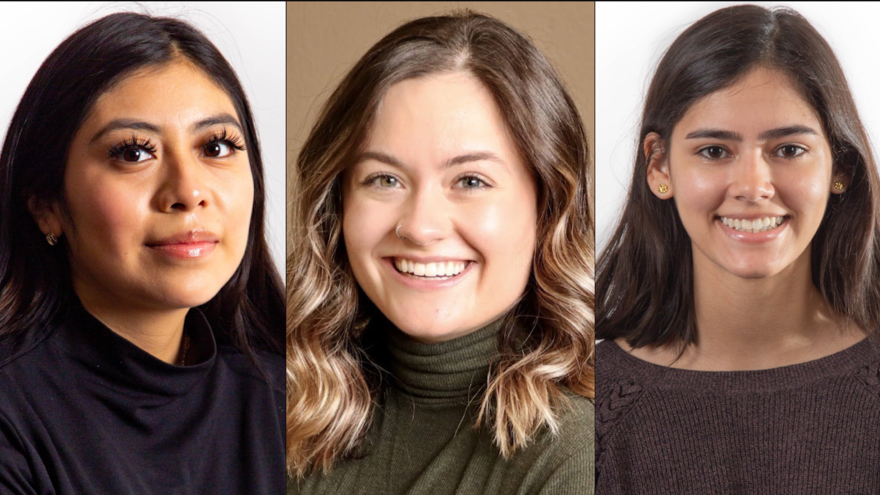When Assistant Professor Marzell Gray was offered a tenure track position with UMD’s Department of Applied Human Sciences, one of his first goals was to find a way to get a more diverse group of students invested in research.
This passion led Gray to create the Undergraduate Underrepresented Research Program (UURP) for public health students in 2020-21. The program is supported by the CEHSP Dean’s Office and provides a unique opportunity for students from underrepresented groups (as designated by the NIH) to conduct their own research projects.

A Black man and first-generation college student, Gray recalls that he didn’t have the opportunity to participate in research during his undergraduate experience. It wasn’t until further along in his academic career when pursuing a master’s degree and doctorate that he had the chance to immerse himself in research projects.
Gray asserts that getting underrepresented students involved in research as undergraduates benefits them academically and can also help to build a more diverse and inclusive academic institution. Gray modeled UURP after a similar student summer research program offered by the University of Minnesota’s Twin Cities campus. Because he thought it would be more beneficial to have students working on projects over a longer time period, he set it up to run over both fall and spring semesters.
UURP students receive mentorship from faculty mentors. Over the course of an academic year, they learn how to develop quality research papers and present their work. In the program's pilot year, each student received up to $1,500 to use towards research, conference fees, travel, and publication fees.
Three students participated in the UURP this past year: Sara Hildreth, Jocelyn Montiel, and Mary Parsatoon. They each selected research projects based on topics of personal interest. “The students really drive the work, it’s not faculty research,” says Gray.
Hildreth focused on the role of the arts in health, Montiel studied awareness of chronic kidney disease among students, and Parsatoon looked at waste management during the pandemic at university dining centers.
The UURP students had the opportunity to present their findings at different virtual showcases, including the CEHSP Research & Scholarship Showcase and the UMD Public Health Spring 2021 Showcase as well as conferences for the National Council of Undergraduate Research and Minnesota Public Health Association.
“The growth we saw from all of them was really something—from writing to being able to speak about the content and information they are passionate about,” Gray says. “Seeing that was a proud moment for all of us faculty mentors.” In addition to Gray, Assistant Professor Jessica Hanson and Associate Professor Ladona Tornabene mentored students this past year.
Gray says all of the students who participated in UURP found ways to continue their projects in some form or another, whether taking on a related job, continuing to work toward research publication, or going on to participate in the Undergraduate Research Opportunities Program.
UURP is currently open to sophomores and juniors in the UMD Public Health program who have completed a foundation of key coursework. Priority will be given to those who meet NIH guidelines for underrepresented groups in science research. Gray has secured funding for the 2021-22 academic year and will be exploring more sustainable funding to grow the program in the future. More information is available on the UURP website.
Top feature photo: Jocelyn Montiel, Sara Hildreth, and Mary Parsatoon.
Jayna Brown, a UMD student who is majoring in Integrated Elementary and Special Education, contributed to this story. Brown works with Lissa Maki as a communications assistant in the College of Education and Human Service Professions.
